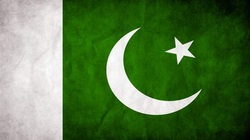
Rimsha Masih, an 11-year-old Christian girl with Down’s Syndrome, was arrested on 17 August on charges of blasphemy for allegedly burning pages with text from the Qur’an, although she is a minor and local sources report that the basis for the accusations is far from clear. President Asif Ali Zardari has given assurances that misuse of the blasphemy laws will not be tolerated by the government, but human rights activists in Pakistan continue to underline the urgent need to reform the laws.
Hundreds of Christians have fled Mera Jaffar village, on the outskirts of Islamabad, for fear of reprisal attacks from mobs who surrounded the village. Dr Paul Bhatti, Special Adviser to the Prime Minister on National Harmony, held a meeting with prominent Muslim clerics, who have successfully calmed the situation to some extent.
According to the All Pakistan Minorities Alliance (APMA), Rimsha was charged under Pakistan Penal Code section 295B, part of the notorious blasphemy laws, which stipulates a sentence of life imprisonment for willfully defiling, damaging or desecrating a copy or extract of the Qur’an.
Although Rimsha’s mother and sister were initially taken into protective custody by the police, they have since been released, but Rimsha will remain in Adiala prison, a juvenile detention facility, until her bail hearing. APMA reports that Rimsha was remanded in prison because the police were advised that she was 16 years old, though she is in fact 11 years old and therefore a minor.
President Asif Ali Zardari has instructed the Minister of Interior to investigate Rimsha’s case.
Statistically, most of those accused of blasphemy in Pakistan are from Muslim backgrounds, although religious minorities such as Christians make up a disproportionate number of victims. The life of the accused is at risk from sympathisers of the accuser as soon as the allegation is publically known, and even after acquittal. The state has long been silent on the issue and many sections of civil society currently consider it too volatile a subject to tackle through public channels.
On 3 July, a mentally unstable Muslim man was beaten to death following a blasphemy allegation made against him.
David Griffiths, South Asia Team Leader for Christian Solidarity Worldwide (CSW), said, “Any blasphemy accusation in Pakistan has the potential for tragedy, because the victim can be marked for life. But the detention of a vulnerable 11-year old girl with Down’s Syndrome is a terrible circumstance. Human rights activists in Pakistan have long protested against the misapplication of the blasphemy laws; and Rimsha Masih’s case is yet another example. President Zardari’s assurances are welcome, but now is the time for to translate words into action and introduce much-needed reforms. This is also a long-term struggle, and the government must invest in strengthening law enforcement to prevent the escalation of hostility, threats and violence after blasphemy accusations are made, and tackling the way that extremist mindsets are fostered through the education system.”
According to the All Pakistan Minorities Alliance (APMA), Rimsha was charged under Pakistan Penal Code section 295B, part of the notorious blasphemy laws, which stipulates a sentence of life imprisonment for willfully defiling, damaging or desecrating a copy or extract of the Qur’an.
Although Rimsha’s mother and sister were initially taken into protective custody by the police, they have since been released, but Rimsha will remain in Adiala prison, a juvenile detention facility, until her bail hearing. APMA reports that Rimsha was remanded in prison because the police were advised that she was 16 years old, though she is in fact 11 years old and therefore a minor.
President Asif Ali Zardari has instructed the Minister of Interior to investigate Rimsha’s case.
Statistically, most of those accused of blasphemy in Pakistan are from Muslim backgrounds, although religious minorities such as Christians make up a disproportionate number of victims. The life of the accused is at risk from sympathisers of the accuser as soon as the allegation is publically known, and even after acquittal. The state has long been silent on the issue and many sections of civil society currently consider it too volatile a subject to tackle through public channels.
On 3 July, a mentally unstable Muslim man was beaten to death following a blasphemy allegation made against him.
David Griffiths, South Asia Team Leader for Christian Solidarity Worldwide (CSW), said, “Any blasphemy accusation in Pakistan has the potential for tragedy, because the victim can be marked for life. But the detention of a vulnerable 11-year old girl with Down’s Syndrome is a terrible circumstance. Human rights activists in Pakistan have long protested against the misapplication of the blasphemy laws; and Rimsha Masih’s case is yet another example. President Zardari’s assurances are welcome, but now is the time for to translate words into action and introduce much-needed reforms. This is also a long-term struggle, and the government must invest in strengthening law enforcement to prevent the escalation of hostility, threats and violence after blasphemy accusations are made, and tackling the way that extremist mindsets are fostered through the education system.”


 RSS Feed
RSS Feed